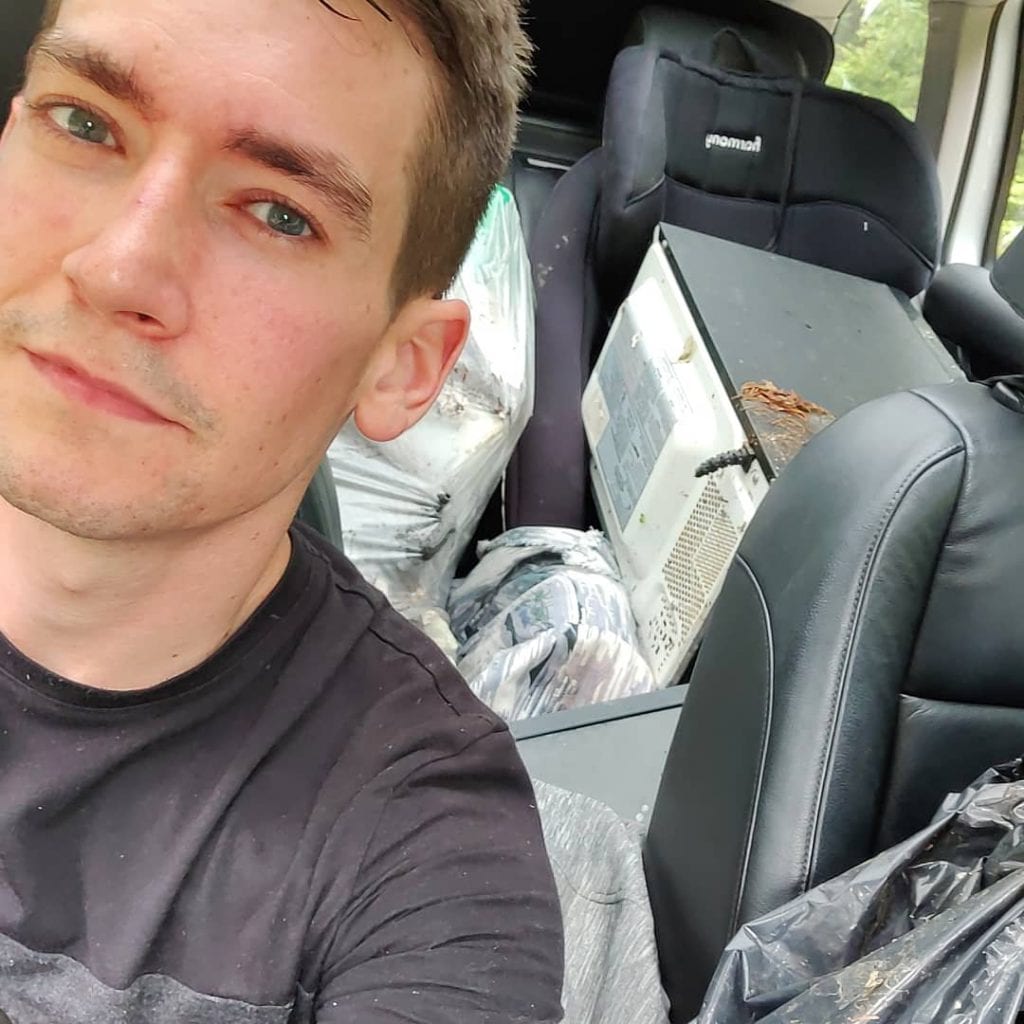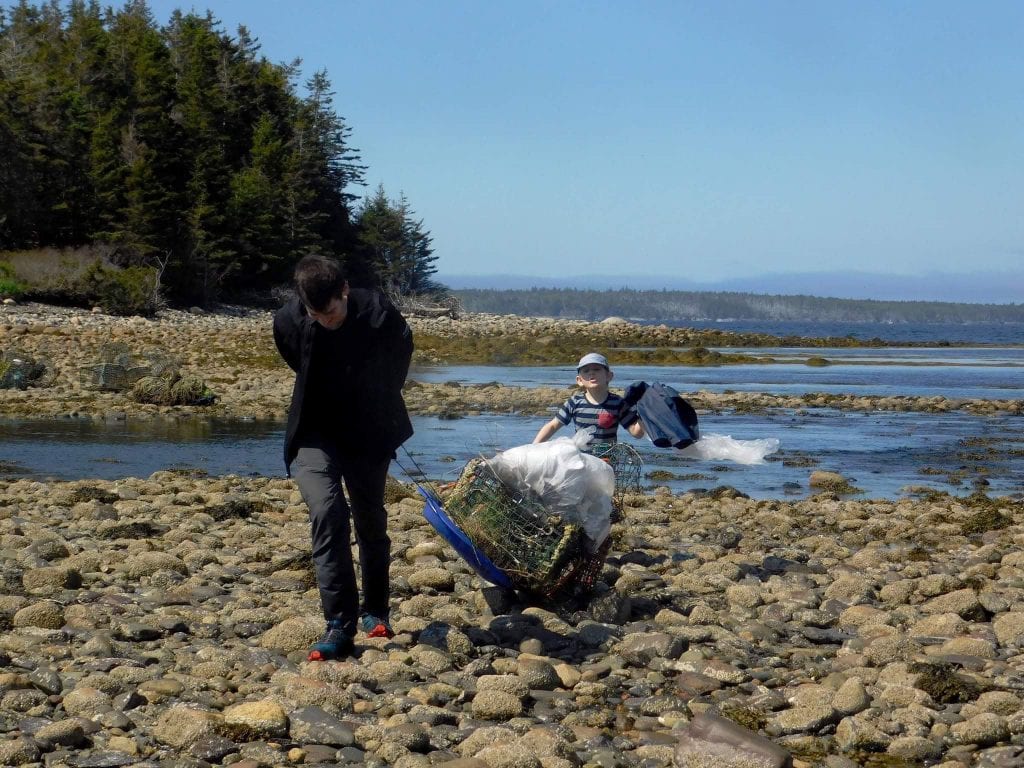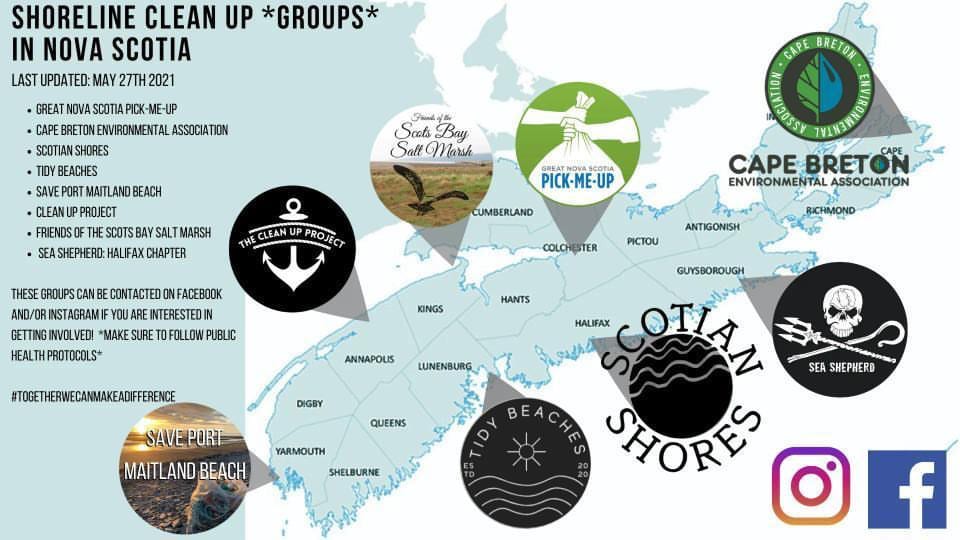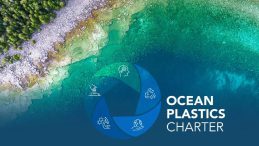
This month’s #LocalHero is Nick Curran. He is involved with the organization Scotian Shores, which sets out to clean up the shores of Nova Scotia as well as raise awareness on plastic pollution.
We asked him a series of 10 questions to learn more about the work he does and how important it is.
1) Tell us a bit about yourself and why you are so passionate about the environment.
From my studies in plant physiology and the research I was involved in, I have a strong sense of what healthy and thriving ecosystems look like. I spend the majority of my free time outdoors with my son and constantly come face to face with the repercussions of society’s consumption habits. After finding enough single-use coffee cups tossed into the ditch next to a waterway to fill several bags, they will never look the same to me.
2) What actions do you take to help the planet?
I have been more than eager to find any area that needs a clean-up, in my province and beyond, and reach out to the appropriate parties to address it. The group I go out a lot with right now is Scotian Shores, who organize ocean shoreline clean-ups in Halifax Regional Municipality and other parts of Nova Scotia. I also seek out highly trafficked areas in the province to clean up on my own and to look for larger projects that could use a team.
3) Why are these actions important?
We know for a fact that millions of pieces of plastic are entering the ocean every day. If we do our part and kindly reach out to those around us to help, we can slow the seismic flood of contaminants rushing into the ocean. Also very important is the collection of sizable, accurate data banks in order to grasp the true magnitude of this issue.
4) What are the challenges you face?
Some of these clean-ups are very physically demanding. You do have to have a certain level of fitness to navigate over the sometimes-rough terrain carrying loads of trash. In the last month, we removed 1500lbs and another team pulled another 2000lbs of garbage from Nova Scotian shores. In some areas, the amount of trash found there was a startlingly accurate representation of the damage done to the ecosystem.
5) What has been your favorite experience so far?
The feeling in the moment after you’ve been out for a few hours and you walk back to the beginning and see the area as it should appear for the first time. It’ll never get old.
6) What is the most rewarding part of shoreline cleanups?
Being able to see what and how much we’re removing from these places gives me a very clear understanding that there is much to do. It has motivated me to reach out for support from my community and people around the world, and be able to raise awareness about what’s really going on. Being surrounded by like-minded people helps me feel more connected and supported on the issue.
7) In your opinion, has the pandemic contributed to the single-use plastic waste problem in Canada? If so, in what ways?
The pandemic has definitely contributed to the amount of single-use plastic waste — globally. Most notably, all the masks, but there has also been an increase in the use of other products made with single-use plastics like additional PPE, takeout containers and cutlery, and construction materials (especially styrofoam).
8) Are there any items that you keep coming across every time you do a cleanup?
Plastic bottles, plastic fishing rope, metal lobster traps, rubber lobster claw bands, random confetti sized plastics, and styrofoam are what come to mind.
9) What steps can people take to remove plastic from their day-to-day life?
Be very mindful of what you’re consuming. Ask yourself, why are you consuming it? Is there a version of this, here or elsewhere, that doesn’t have this plastic wrapping? If I’m buying it pre-made, could I buy the ingredients in bulk and make it myself?
And buy things second-hand! There are lots of groups dedicated to selling gently used items.
10) Do you have any recommendations for people wanting to make a difference in their communities?
We are typically surrounded by a multitude of forests, rivers, wetlands, lakes and estuaries that need to be cleaned up. Get outside and explore your community safely, and keep your eyes open for irregularities. Ask your friends and family to be open about places they’ve been and what they saw, and whether or not it’s worth addressing. Find like-minded individuals to help you heal some damaged areas of the land we share.


Thank you so much Nick for the great work you do! Be sure to follow him on Instagram at @nickh.curran and on TikTok at @ecoshamenovascotia.
And be sure to follow Scotian Shores (@scotianshores) to get involved!



One Response
Great work! Nick has inspired us to do the same and we had the privilege of joining him on one of the clean-ups in Nova Scotia to have a firsthand look at what types of items/industries are polluting the shorelines.
– Shane, Owner/Operator, 9Block Productions